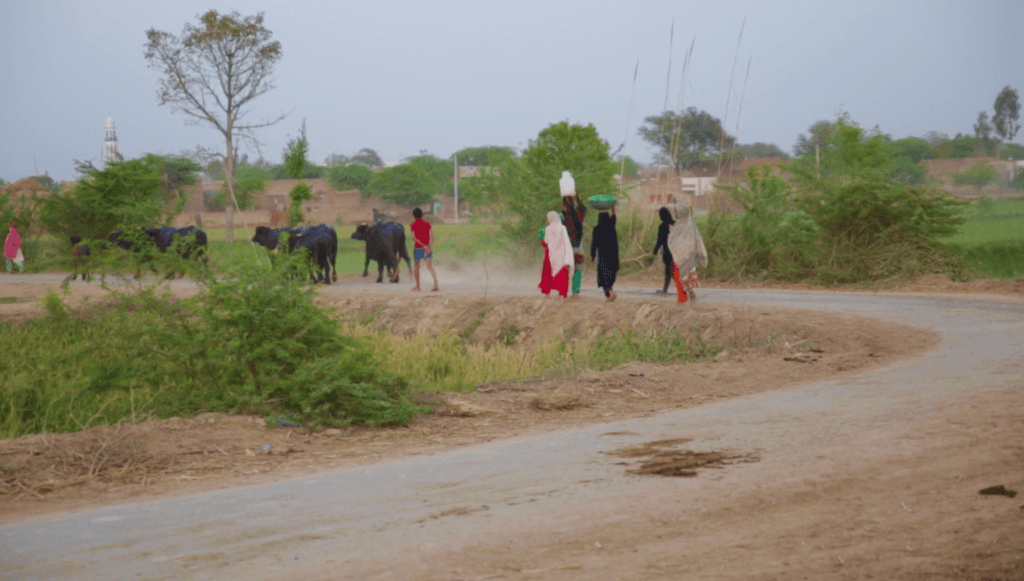Transforming Villages

By Javed Ahmed Malik
In my book published last year, I argued that if we intend to eliminate poverty and improve public service delivery, an immediate administrative re-structuring is required at the local level -moving a step down the hierarchy, from union council and making village as the basic administrative unit of the state. This is essentially not a new idea, but I situated it more within the state system rather than relying upon local governments alone which I apprehend shall remain fragile and practically dysfunctional in Pakistan for many years in the future. I proposed this structure in more general terms for the entire country but more specifically for Punjab with which I am most acquainted and also had the privilege to lead the design and implementation of a large-scale education programme to reform 54000 schools for seven years.
Poverty is essentially rural in Pakistan:
Economists typically approach poverty as an income deprivation problem (which is largely true) but little effort is made to understand what might have been the cause of such awful statistics. As sociological theorist Hugh Ladder explains, there are generative mechanisms in society (and state) always causing/informing empirical reality and if we ignore those underlying factors, we will not be able to fully comprehend reality.
However, there is no need to sustain the same early design of the colonial structure of the executive (administrative) branch of government which cannot deliver in villages. Designed to exclude citizens in the affairs of the state in post 1857 raj days, the present state structure ensures preference for an urban centric development and the exclusion of villages. This led to almost stagnant human development indicators in Pakistan especially in rural areas despite relatively good GDP growth rates. Since 1990, neither economic growth nor changes in the form of governments and structure of policy apparently could significantly change development in our villages.

photo credit: Tahir Awan
Local government would not last long in Pakistan.
Although an autonomous local government at village level (proposed in the Local Government Ordinance 2001 as the fourth tier of government and sparingly pilot tested during Musharraf period) can resolve many of these problems, in Pakistan this experience has never lasted long. Local governments will remain fragile at least in the next fifteen years to prove that they can withstand political change in the country. Since local government is a provincial subject, based on evidence we now know that all important players in the power equation do not want decentralized and empowered local governments in letter and spirit. Chief Ministers want control of development in districts and do not want local governments due to political reasons, Chief Secretaries (and his Deputy Commissioners in districts) do not want it either for reasons of control as well as fears of weak public financial management system inside local governments to manage large amount of money well and the member of the national assembly and provincial assembly also think that their influence on development funds in their districts will erode if local elected members and their District Chairman/Nazim are seen as more influential than them in managing local level development. These MNAs form political parties vote for the Prime Minister and no one can go against them to restore local governments in true spirit.

photo credit: Tahir Awan
The present Prime Minister luckily is a one-man force to support and champion local governments all along but in Punjab at least many interest groups are already hell bent to either delay elections and or make amendments already in the new law to make it spineless. Except present prime minister, no other mainstream leader even in his own party at national or provincial level has ever asserted for local government or have even attempted to do something meaningfully.
Making rural development low stake and embedding in the structure of the state:
Keeping this in mind, I propose a new system: an extension of the executive branch of the state by adding an effective outreach function which could treat the citizens not as subjects but equal partners in development. That would entail the creation of a permanent village level institution called Village Social representing 300 households with each member representing 15 households as an administrative entity of the state Each member would have a legal status and a bank account and will have the sole responsibility of delivering development and improving their sanitation, maintain cleanliness. Village socials will be created automatically through an administrative order with each village organizing themselves in a body and starting the registration and opening up of bank account. Village Social will report to a new structure created inside executive branch at Union, Tehsil, District and Provincial level. An Assistant Commissioner (Community Outreach), Deputy Commissioner (community Outreach) and Secretary (community outreach) inside Planning and Development reporting to Chairman (P&D) will automatically accept people as equal stakeholders. Each Tehsil Assistant Commissioner will be supported by Technical Assistance of specialized development Organizations (NRSP, Plan, Hands etc.) with integrated rural development expertise and outreach capacity. The technical assistance will be outsourced to these organizations through competitive bids.

photo credit: Tahir Awan
Treating villages as an extension of state’s institutional set up with control over funds and their decision-making will jump start village human development, improve local economy, will make state’s fiscal policy more effective and improve GDP. It can transform villages at a rapid pace.
Eventually, Pakistan will have to solve the problem of under development and weak economy because without a strong functioning rural economy and an active engaged population in development work, we cannot claim to become a state we want to be.
————————————-
Javed Ahmed Malik is the Country Representative of Democracy Reporting International and is based in Islamabad. He can be reached at javedkaemail@yahoo.com




